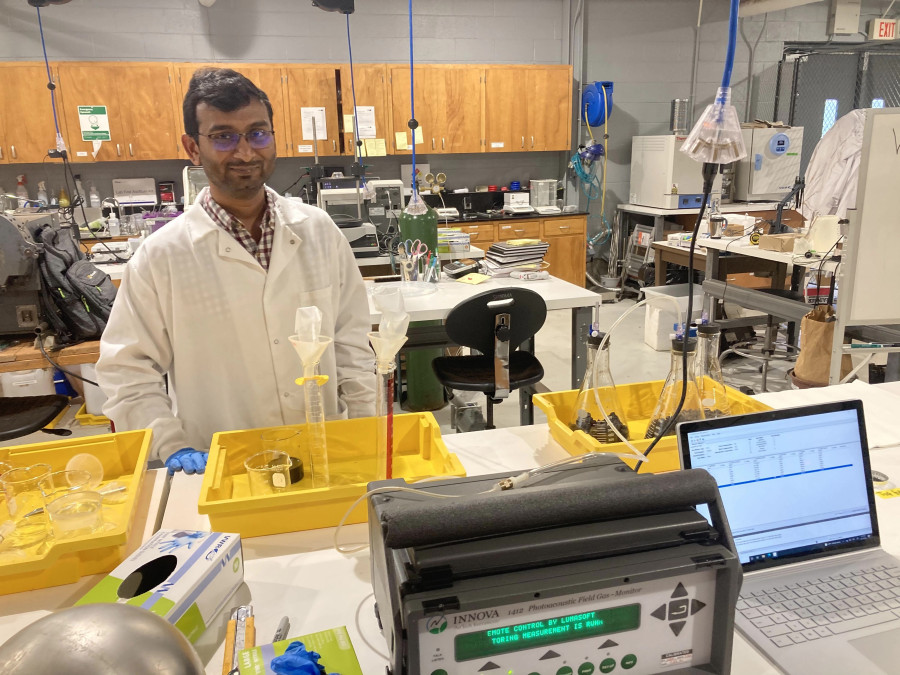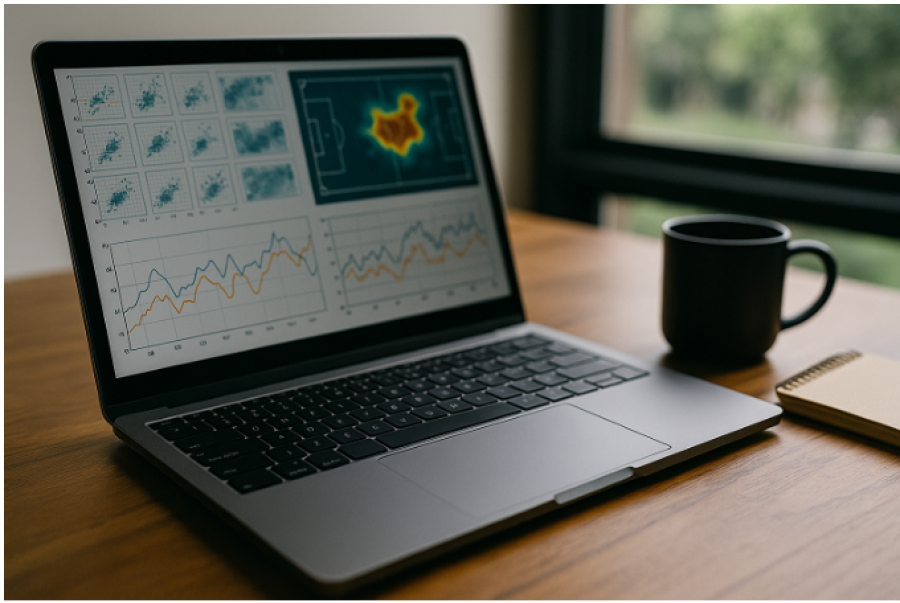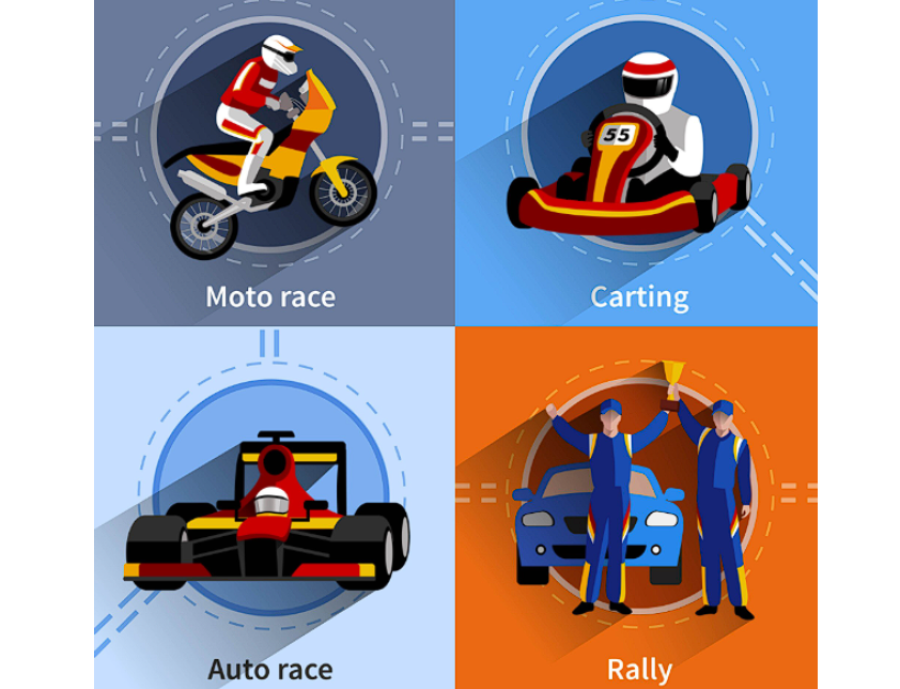New York (February 25, 2025): Every bite of food you trust, whether it’s a can of tuna or a factory-prepared meal, depends on one crucial factor: safety. But who ensures that the food on your plate is free from contamination?
Behind the
scenes, experts like Micaela Belén Calahorrano Moreno, a highly regarded
chemical engineer specializing in industrial hygiene and food safety, work
tirelessly to maintain the highest standards of cleanliness and safety in food
processing plants. Born and raised in Manta, Ecuador, Micaela’s passion for chemical
engineering is deeply rooted in her academic achievements and professional
experiences that span multiple industries, including food production, cleaning
products, and environmental management.
Micaela
earned her degree in Chemical Engineering from the Technical University of
Manabí (UTM) in 2020, establishing a strong foundation for her expertise. She
expanded her qualifications with specialized training as an Internal Auditor in
Integrated Quality, Environmental, and Safety Systems, achieving multiple
certifications from SGS Ecuador S.A. Additionally, she pursued a diploma in
Quality Management with a focus on Food Safety, obtaining Lead and Internal
Auditor certification in ISO 22000:2018 from the University of Cataluña,
Colombia.
In 2022,
Micaela was appointed as the Technical Representative of Controlled Substances
under the oversight of the Ministry of the Interior, Ecuador: “As a technical
representative for controlled substances, I make sure every chemical used in
food factories is safe, effective, and properly applied,” she explains. “A
single mistake in sanitation can compromise an entire production line—my job is
to ensure that never happens.”
Her work
is critical in a country that ranks among the world’s top seafood exporters.
With global markets demanding the highest safety standards, Ecuadorian food
manufacturers turn to Micaela to guarantee their products remain
uncontaminated, compliant, and ready for international shelves.
The
Science Behind Food Safety: Micaela’s Role in Industrial Hygiene
Micaela’s
approach to food processing goes beyond basic cleaning; she applies advanced
chemical engineering principles to create a sterile, contamination-free
environment essential for safeguarding public health. “Food factories are
complex ecosystems,” she explains.
“Even if a
plant looks clean, it doesn’t mean it’s free from harmful bacteria, chemical
residues, or contamination risks. That’s where expertise in industrial hygiene
becomes critical.”
She
meticulously ensures that disinfectants and cleaning agents are scientifically
formulated to eliminate bacteria, viruses, and pathogens. Food contact surfaces
are sanitized using certified food-safe chemicals, and workers strictly follow
hygiene protocols, from handwashing to wearing protective clothing.
Furthermore, Micaela oversees storage conditions to prevent contamination from
environmental sources like airborne particles, pests, or cross-contact with raw
materials.
These
measures are not just recommendations; they are critical safeguards that prevent
large-scale foodborne illness outbreaks and costly product recalls, ensuring
the highest level of safety and compliance at every stage of food production.
Solving
a Major Crisis: Micaela’s Fight Against Contamination in a Seafood Factory
Micaela’s
exceptional expertise has been tested in some of Ecuador’s largest seafood
processing plants, where even the slightest contamination can lead to
catastrophic financial losses.
“One of my
biggest challenges involved helping a seafood factory overcome a major hygiene
problem—flies were contaminating the production line, despite stringent
cleaning protocols,” she recalls.
At first,
the factory managers were perplexed. They had already implemented rigorous
cleaning procedures, but the problem persisted. Micaela’s scientifically driven
approach to industrial hygiene uncovered the actual cause.
“After
conducting a thorough environmental and chemical assessment, we discovered that
the company was neglecting its sewage systems,” she explains, “Waste buildup in
the underground drainage system was attracting pests, and standard cleaning
methods simply couldn’t address the root of the issue.”
Rather
than just intensifying surface-level cleaning, Micaela devised a targeted,
chemical-based sanitation plan designed to tackle the core problem.
“We
introduced specialized acid-based cleaning agents to break down the organic
waste in the drainage system,” she says.
“Within
weeks, the infestation was eradicated, and the factory was able to meet
international safety standards once again.”
Her
ability to diagnose complex food safety issues and implement effective,
high-impact solutions has cemented her reputation as one of the most
sought-after consultants in the industry. She is trusted to safeguard the
health and success of leading food manufacturers.
“One of
the areas I highlight is her strict compliance with all applicable laws and
regulations, as it underscores her comprehensive and legalistic stance,” says
Attorney Pierina Bello Felli, a specialist in Intellectual Property and Micaela’s
legal advisor.
She adds:
“Micaela also demonstrates a responsible and ethical approach to business by
ensuring her actions remain in full compliance with environmental regulations,
showing a deep commitment to both nature and society.”
This
dedication to legal and ethical integrity further reinforces Micaela’s standing
as a top-tier consultant who tackles high-risk food safety challenges and
aligns her work with broader societal and environmental values.
Beyond
Seafood: Micaela’s Impact on Ecuador’s Food Industry
While
seafood safety is a cornerstone of Micaela’s work, her expertise spans various
sectors, each with its unique challenges and critical hygiene requirements.
Micaela
ensures that equipment and surfaces are thoroughly disinfected in meat
processing plants to prevent dangerous contaminants like E. coli and
Salmonella. In dairy factories, she meticulously monitors pasteurization
processes and identifies harmful chemical residues in milk and cheese,
safeguarding the integrity of every product. She also elevates hygiene
standards in packaged food production, enhancing safety protocols in
manufacturing snacks, beverages, and canned foods.
Micaela’s
approach is a powerful blend of scientific research, hands-on experience, and
an unwavering commitment to strict regulatory compliance: “I don’t just tell
companies what to do,” she says. “I work directly with factory staff, train
them on scientifically proven sanitation protocols, and conduct on-site
chemical assessments to ensure food safety isn’t just theoretical—it’s tangible
and real for consumers.” Her hands-on, research-driven methods ensure that
safety doesn’t stop at the surface but is embedded in every step of the production
process.
Stefania
Cevallos, a chemical engineer and former classmate, praises Micaela’s
expertise: "Micaela’s commitment to excellence is truly inspiring. Her
precision in formulating sustainable cleaning products, deep regulatory
knowledge, and expertise in manufacturing optimization have been invaluable.
She ensures the highest quality standards and empowers others with her
knowledge, driving innovation and business growth.”
Micaela’s blend of technical mastery and dedication to sustainability makes her a true leader in the field.
Industrial
Hygiene: A Science, Not Just a Process
Micaela
firmly believes that food safety goes far beyond ticking boxes. It requires a
profound understanding of microbiology, chemistry, and engineering principles:
"In food processing plants, we don’t just ‘clean’, we engineer safe
environments," she says.
"That
means using the perfect combination of detergents, sanitizers, and
sterilization techniques to not only eliminate pathogens but also maintain
food-safe conditions throughout the process."
Her
expertise has led her to collaborate with leading food exporters, optimizing
sanitation protocols for factories that produce tuna, frozen seafood, and
ready-to-eat meals: "Each type of food demands a unique hygiene
strategy," Micaela explains. "Seafood, for instance, requires
specialized disinfectants to eliminate marine bacteria, while meat processing
plants rely on heat-based sterilization to kill pathogens."
What sets
Micaela apart in the industry is her exceptional ability to customize safety
solutions tailored to the specific needs of each food product. This
personalized, scientifically driven approach ensures that food safety is never
one-size-fits-all but is precisely engineered to meet the unique challenges of
every factory, protecting both consumers and brands alike.
Professor
Joan Manuel Rodríguez Diaz had Micaela as a student when she attended the
Technical University of Manabí. He says she understands the meaning of ethics
and applies it in all her actions.
He recalls:
“In a world where professional ethics can sometimes be compromised, she stands
out for her integrity and commitment to excellence. Her leadership is not based
on imposition but on example: she works rigorously, respects her colleagues,
and always seeks fair and efficient solutions.
“Without a
doubt, her intelligence is the first thing that stands out. But beyond that,
what truly distinguishes her is her problem-solving ability and her knack for
standing out in any setting. Her dexterity in the laboratory is impressive, and
she also possesses a natural talent for leading research and experimentation
processes. Micaela executes tasks with precision and constantly seeks ways to
improve procedures and optimize results.”
The
Future of Food Safety: Micaela’s Mission to Improve Industrial Hygiene
Micaela is
at the forefront of helping companies meet stricter global food safety
standards, especially as foodborne illnesses, antibiotic-resistant bacteria,
and environmental contamination become more prevalent: “Food safety is not
optional, it’s an absolute necessity,” she emphasizes.
Micaela
believes the future of food hygiene hinges on advanced chemical sanitation
methods that are both effective and eco-friendly: “Stronger regulations on food
factory cleaning procedures will be essential,” she continues. “We must set
higher standards to hold factories accountable for maintaining rigorous hygiene
practices.”
“And most
importantly,” Micaela adds. “we must focus on better training for food industry
workers. The human element is often where safety breaks down, and empowering
workers with the right knowledge is key to preventing contamination.”
Her work
has improved hygiene in Ecuador’s factories and bolstered the country’s
reputation as a reliable exporter of safe, high-quality food.
Dr. Pawel
Konieczynski, from the Department of Analytical Chemistry at the Medical
University of Gdansk, acknowledges the significance of Micaela’s research,
particularly in pasteurization.
He says:
"The article titled 'Contaminants
in the Cow's Milk We Consume? Pasteurization and Other Technologies in the
Elimination of Contaminants' is valuable and addresses a crucial
issue in food safety studies, particularly concerning milk." His
endorsement highlights the impact of Micaela’s work in advancing food safety
research.
Micaela
has also trained numerous factory workers and quality control teams on proper
chemical use and hygiene practices. Over the years, she has conducted training
sessions for groups of 30 to 40 individuals at a time across various companies.
Final
Thoughts: Why Micaela Belén Calahorrano Moreno is a Leader in Food Safety
Micaela’s
impact on Ecuador’s food industry is undeniable. With her scientific approach,
industry expertise, and commitment to excellence, she has helped companies
eliminate contamination risks, comply with international food safety
regulations, and improve overall hygiene practices—protecting workers and
consumers.
As
Attorney Pierina says: “Micaela not only shares her extensive expertise through
talks to companies but also advocates for scientific and innovative progress.
This effort contributes to the education and development of future
professionals.
Additionally,
by offering innovative products across various sectors, her company supports
the economy by driving job creation in research, production, and distribution.”
As Micaela’s reputation
as a highly sought-after food safety consultant continues to grow, she is
tackling new challenges in industrial hygiene, chemical sanitation, and quality
control.
She
emphasizes: "Food safety isn’t just about protecting businesses; it’s
about protecting people’s health. And that’s why I’m committed to ensuring that
every food product that leaves an Ecuadorian factory is 100% safe for consumers
worldwide."
Chemical
Engineer Verónica Vinces, who collaborated with Micaela, emphasizes her
outstanding qualities: "As a chemical engineering specialist, she has
demonstrated exceptional skills in performing internal audits with precision
and rigor, ensuring compliance with applicable international standards. This
makes Micaela's professional preparation complete since she knows not only the
chemical area but also the quality, safety, and the environment. This indicates
that she is a professional interested in the environment and society”.
cleaning procedures
will be essential with
leaders like Micaela at the forefront, Ecuador’s food industry is not just
meeting international standards; it’s setting them and positioning the country
as a global leader in safe, high-quality food production.
Author: Jane
Mansfield









